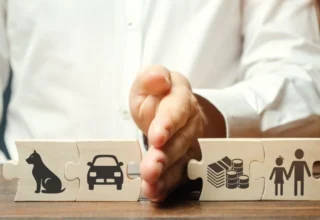
One in three individuals don’t consider probate in Tasmania and pass away without leaving a Will, so making a Will is one of those chores frequently put on the to-do list but never gets done. The principal effect of not making a Will (dying intestate) is that the law will decide how your inheritance gets distributed; disregarding whatever preferences you may have while writing a Will doesn’t have to be complicated. To help you out, we’ve compiled the top 11 Will considerations for you in this article.
Table of Contents
1. Planning
Making a list of everything you possess, sometimes referred to as your estate, is the first step in our Will considerations.
Your estate could consist of the following:
- Individually or jointly owned assets that pass to the surviving owner, such as a husband, wife, child, or sibling)
- Trust-held assets, such as pension benefits or life insurance contracts
- Physical objects like jewellery and automobiles
- Shares, bonds, bank account information, and ISAs
- Royalties
- Both responsibilities and debts
2. Choose who you wish to write your Will
Think about the many Will-writing alternatives. Depending on the intricacy of your affairs, solicitors offer a Will-writing service, sometimes for a set charge. Of course, you may use a Will-writing service online or create your Will yourself. You can see tutorials or consult with experts for additional details on the many choices available.
3. Is anyone financially dependent on you?
How to continue supporting family members or other individuals who depend on you financially is a significant factor for many people when making a Will. Consider the long future and many scenarios. For instance, you may use your Will to leave money to your children after a living spouse uses it throughout their lifetime.
4. Put beneficiaries’ names in your Will
Your Will must specify how your estate will be divided between all beneficiaries. It might entail dividing up a certain amount of money, an item, or a portion of the estate. Before writing a Will, list the people you want to include. You don’t need to be sure of your preferences before meeting with an attorney because they may advise you on various methods to distribute assets and prepare for future generations.
If you want to share money with a charity, your Will should provide the organisation’s full name, registered office, and registered charity number.
5. Think about unanticipated issues
Unfortunately, even the best-laid plans can fail due to unforeseen circumstances, so be prepared for the chance that a beneficiary could pass away before the Will is necessary. If they cannot take it directly, you can accomplish this by specifying who receives their portion.
6. Choosing an executor for your Will
Dividing the estate among the beneficiaries and seeing any taxes and unpaid obligations get paid falls to the executors of a Will. You should select two or more executors but up to four. Each of them must work together to make any choice that might impact the conclusion. Close relatives who are also beneficiaries may serve as executors, but they must be at least 18 years old.
7. Clear and simple
When drafting a Will, you should carefully choose the language to ensure that the Will is correctly construed. It makes it more likely that the wishes expressed within Will be unambiguous. While lawyers are best at creating a Will, internet templates and Will writing services can assist you in making sure that the language you use is evident.
8. Think about Inheritance Tax
An Inheritance Tax levies on the estate when the owner dies, and the beneficiaries get the estate. Any inheritance tax that has to get paid must be done so by the executor(s).
Although there are exclusions, the laws governing inheritance tax are complex. Professional consultants have guidelines to explain inheritance tax and advice on how to lower it.
9. Witnesses and Signing Will
It is the most significant Will consideration of all. A Will must get executed in the presence of witnesses who are not beneficiaries or the husband or civil partner of a beneficiary for it to be legally binding. They must sign it after seeing you do so and in your presence. Consider who you want to be present with during the signing and how you can all make it.
10. Who will be your Beneficiary?
Your beneficiaries are the persons who will receive your real and personal property. Usually, these are the closest individuals to you, but you should also consider what can occur, for instance, if you and your spouse pass away simultaneously.
Even when considering unlikely circumstances, the more specific your desires are stated in your will, the better.
11. Storing a Will
The last thing to consider is where a Will needs to get stored while creating one. When you use a lawyer or Will writing service, they provide Will storage choices for a discount or free of charge. Additionally, independent Will storage businesses and Probate Services can take care of a Will. Your bank can keep your Will on file. Alternatively, you can trust your selected executor with it or keep your Will secure yourself.
Contact the Professionals: Probate Consultants
We hope these points will help you while considering a Will. If you have any questions and need help with probate applications in NSW, get in touch with our expert Probate Consultants and let us help you solve all your issues and precise all your queries in no time!















